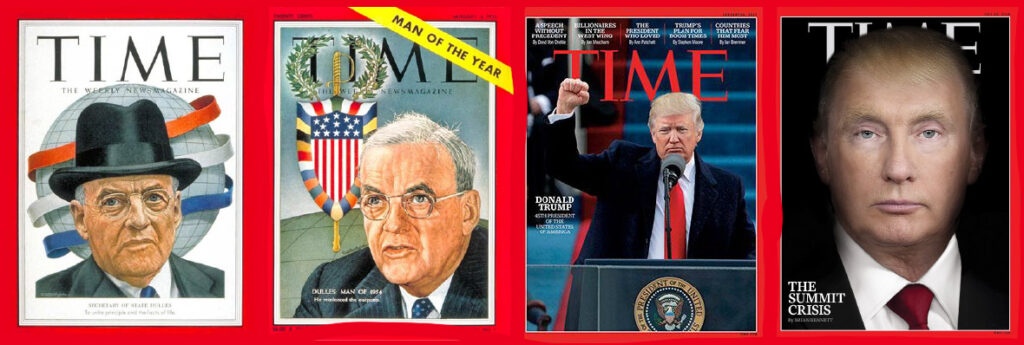A group of U.S. House Republicans wants to rename Washington Dulles International Airport after Donald Trump. The airport is currently named for John Foster Dulles, a former Secretary of State who fought against communism during the early stages of the Cold War.
Dulles’s time as Secretary during the Eisenhower Administration was marked by a general consensus in US policy that peace could be maintained through the containment of communism. He was the champion of using security treaties — NATO, SEATO, the Baghdad Pact, and the Eisenhower Doctrine — to keep the Soviet Union in check.
The Dulles-to-Trump bill was introduced late last week by Rep. Guy Reschenthaler, who tweeted: “Freedom. Prosperity. Strength. That’s what America stood for under the leadership of President Donald J. Trump – the best president of my lifetime. And that’s why I’m introducing legislation to rename Dulles as the Donald J. Trump International Airport.”
The 40-year-old Pennsylvania Republican is seemingly unaware of the irony of wanting to rename an airport that honours a statesman, and former Republican senator, who fought to contain Communism and championed NATO, to that of a man who calls the perpetrators of the Jan. 6 insurrection, “unbelievable patriots” and “heroes,” and who openly admires and kowtows to Communist bullies Putin and Kim Jong Un while denigrating NATO and America’s European allies.

Response to the name change idea has not been enthusiastic, with Rep. Abigail Spanberger, stating on X: “This idea is ridiculous, but sadly real.”
Meanwhile, Democratic Rep. Gerry Connolly, who represents the region that includes Dulles, told Politco, “Donald Trump is facing 91 felony charges. If Republicans want to name something after him, I’d suggest they find a federal prison.”
But Democratic congressman Brendan Boyle admitted he might consider the name change to recognize the 45th president, posting on X: “Dulles is an old, ugly airport that no one wants to see. So, I think this is a fitting tribute to 45.”
The bill, co-sponsored by six other Republicans, was referred to the House Transportation and Infrastructure Committee for further consideration but is considered unlikely to receive enough support to be passed.

